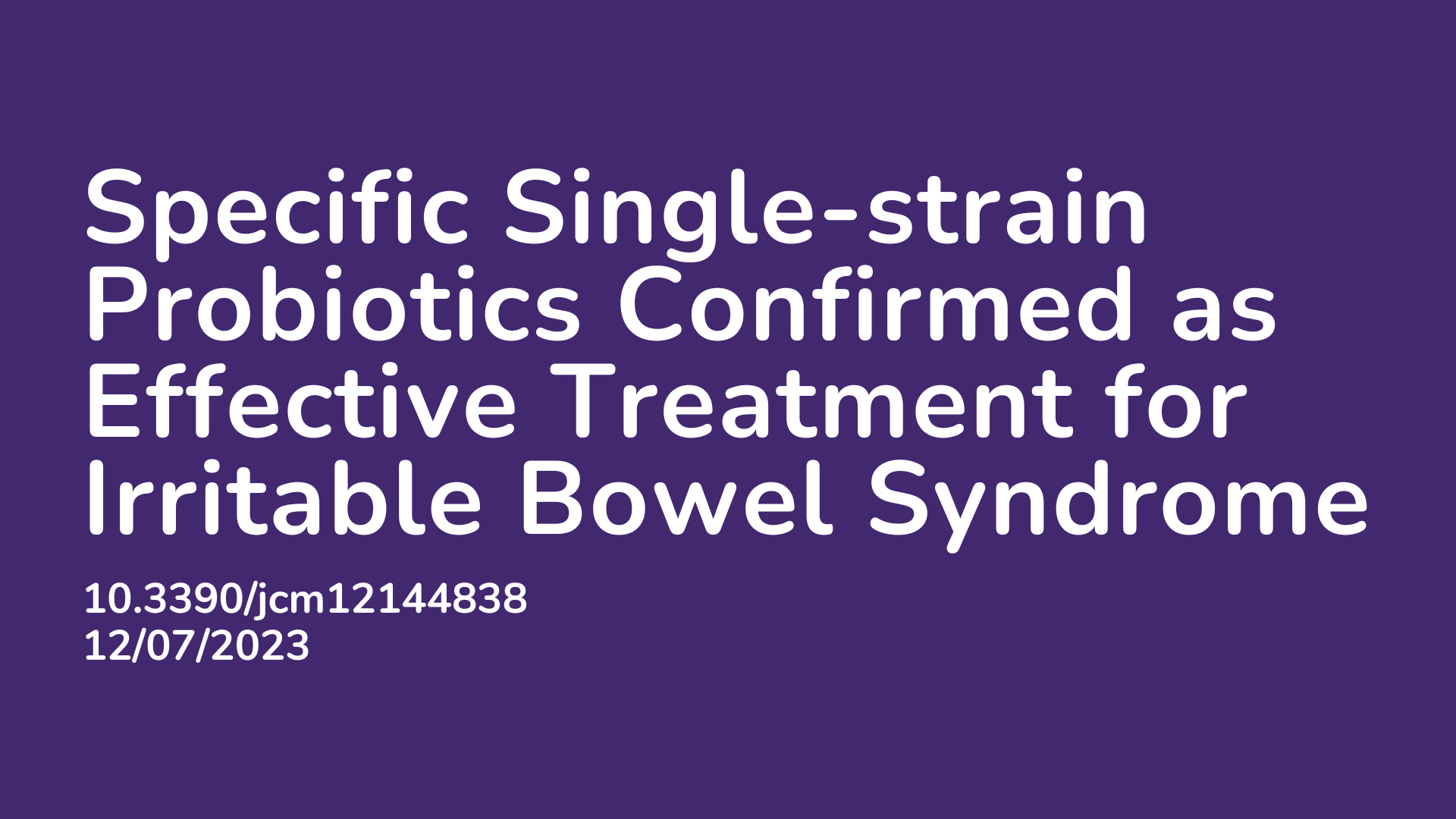Summary:
Irritable bowel syndrome (IBS) is one of the most common gastrointestinal disorders, marked by recurring abdominal pain and discomfort. These symptoms are accompanied by alterations in bowel frequency and/or stool consistency, often without a known trigger. Probiotics might be a new and innovative direction for addressing IBS, although current findings remain unclear. The objective of this paper was to evaluate the effectiveness and safety of single-strain probiotic formulations in adults with IBS. Additionally, it aimed to compare the impacts of Bifidobacterium lactis and Bacillus coagulans in a randomized double-blind placebo-controlled clinical trial. The study enrolled 123 participants diagnosed with IBS. The results showed that Bifidobacterium lactis demonstrated a positive effect on pain intensity and frequency, while Bacillus coagulans led to a reduction in bowel inconsistencies. Both strains increased the percentage of patients with normal stool consistency, whereas only Bifidobacterium lactis contributed to a decline in constipation after 6 weeks of supplementation. In conclusion, the administration of single-strain probiotics was deemed safe and effective for IBS patients and could ameliorate pain frequency, intensity and inconsistency.
Abstract:
Probiotics offer a potential new therapeutic approach for irritable bowel syndrome (IBS), but current results are still controversial. The aim of this study was to assess the efficacy and safety of single-strain probiotic formulations in adult IBS patients and to compare the effects of Bifidobacterium lactis NORDBIOTIC™ BI040 (DSM 33812/34614) and Bacillus coagulans NORDBIOTIC™ BC300 (DSM 33836) in a prospective three-arm interventional randomized double-blind placebo-controlled clinical trial. The study included 123 IBS subjects diagnosed according to the Rome IV criteria. The primary outcomes were changes in symptom severity and symptom improvement as assessed using the IBS Severity Scoring System (IBS-SSS) after 4, 8, and 12 weeks of intervention and after 4 weeks of follow-up. Secondary outcomes included the assessment of individual IBS symptoms and the occurrence of adverse events. During the 12-week intervention, IBS-SSS scores significantly decreased (p-values < 0.001) in the study groups but differences between the interventional and placebo groups did not reach statistical significance. However, at the 16th week of follow-up, a significant improvement in the total IBS-SSS score in comparison to the placebo group (20.5%) was found in 43.8% and 52.9% of the Bifidobacterium lactis (p = 0.038, OR 3.0, [95% CI 1.1–8.6]) and the Bacillus coagulans (p = 0.005, OR 4.6 [95% CI 1.5–12.2]) groups, respectively. Bifidobacterium lactis had a beneficial effect on the intensity and frequency of pain, whereas Bacillus coagulans decreased the bowel dissatisfaction. Both strains increased the percentage of patients with normal stool consistency, but only Bifidobacterium lactis induced a decrease in the number of patients with constipation after 6 weeks of supplementation. Both probiotic strains were well tolerated, without differences in the occurrence of adverse events between groups. In conclusion, single-strain supplementation was safe and efficient in IBS patients but showed a different range of effects. Bifidobacterium lactis BI040 primarily reduced the frequency and intensity of pain, while Bacillus coagulans BC300 increased bowel satisfaction [ClinicalTrials.gov NCT05064930].
Article Publication Date: 12/07/2023
DOI: 10.3390/jcm12144838



